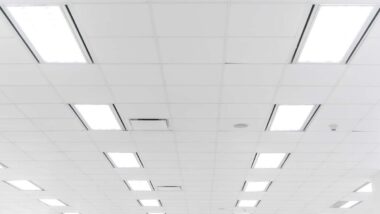Top Class Actions’s website and social media posts use affiliate links. If you make a purchase using such links, we may receive a commission, but it will not result in any additional charges to you. Please review our Affiliate Link Disclosure for more information.

U.S. District Judge Steven P. Logan determined that the court will be able to find which consumers consented to receiving robocalls from Cox despite the company’s lack of comprehensive call records.
“The court is persuaded that putative class members who would ultimately become part of the class would have little incentive to prosecute their claims on their own,” Judge Logan said in his ruling. “Should [individuals] […] choose to file claims on their own, given the potential class size and the relatively small amount of statutory damages for each case, individual litigation would not promote efficiency or reduce litigation costs.”
In June 2018, plaintiff Joanne Knapper motioned for Class certification. Although Cox did not argue against Knapper’s Class definition, the company opposed certification on the basis that individual issues from consumers were at the heart of the TCPA class action lawsuit.
Cox referenced its call records in their argument, saying that they were not accurate enough to identify Class Members. The company also stated that call agents may make mistakes and that some consumers may claim that their numbers are not correct in order to avoid paying bills.
Cox Communications argued that this means that individual issues would need to be investigated to find out if consumers were never a consumer like Knapper.
However, Judge Logan determined that the court could implement reverse lookup to bypass the need for individual investigations.
“While there will undoubtedly be differences in the amount of damages claimed by class members, differences on users, and which numbers were actually called, these issues can also be resolved on a class-wide basis,” he wrote in his ruling.
The recently certified Class includes any consumer who was not subscribed to Cox but got robocalls regarding debt collection from the company between March 28, 2013 and Feb. 6, 2019.
The robocall class action lawsuit was filed in 2017 by Knapper, an Arizona resident who claims she received 11 automated debt collection calls from Cox Communication despite never purchasing services through the company.
Knapper brings claims under the Telephone Consumer Protection Act (TCPA), a federal law that protects consumers from harassing telephone practices including the use of autodialing machines.
Other behaviors prohibited under TCPA include sending unsolicited text messages, failing to provide an opt out option during calls or texts, calling numbers on the Do Not Call Registry, sending junk faxes, and more.
The plaintiff tried to pause the case while the Federal Communications Commission (FCC), which governs TCPA, reconstructed their definition of an “autodialer” under the federal law. However, Judge Logan ruled that a Ninth Circuit decision from September gave him the direction he needed and that pausing the suit was not necessary.
Knapper and the Class are represented by Michael L. Greenwald, James L. Davidson and Aaron D. Radbil of Greenwald Davidson Radbil PLLC.
The Cox Unsolicited Phone Calls Class Action Lawsuit is Knapper v. Cox Communications Inc., Case No. 2:17-cv-00913, in the U.S. District Court for the District of Arizona.
UPDATE: October 2019, the Cox robocall class action settlement is now open. Click here to file a claim.
UPDATE 2: On March 29, 2020, Top Class Actions viewers started receiving checks in the mail from the Cox robocall class action settlement worth as much as $536. Congratulations to everyone who filed a claim and got PAID!
Join a Free TCPA Class Action Lawsuit Investigation
If you were contacted on your cell phone by a company via an unsolicited text message (text spam) or prerecorded voice message (robocall), you may be eligible for compensation under the Telephone Consumer Protection Act.
GET A FREE CASE EVALUATION NOW
ATTORNEY ADVERTISING
Top Class Actions is a Proud Member of the American Bar Association
LEGAL INFORMATION IS NOT LEGAL ADVICE
Top Class Actions Legal Statement
©2008 – 2024 Top Class Actions® LLC
Various Trademarks held by their respective owners
This website is not intended for viewing or usage by European Union citizens.















6 thoughts onCox Unwanted Phone Calls Class Action Lawsuit Gets Certified
add me
Add me please.
Add me
Add mr
add me
Add me